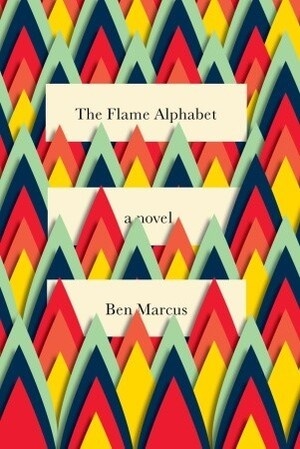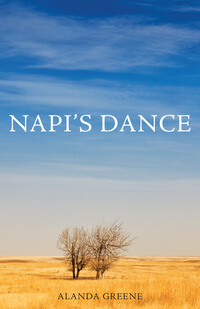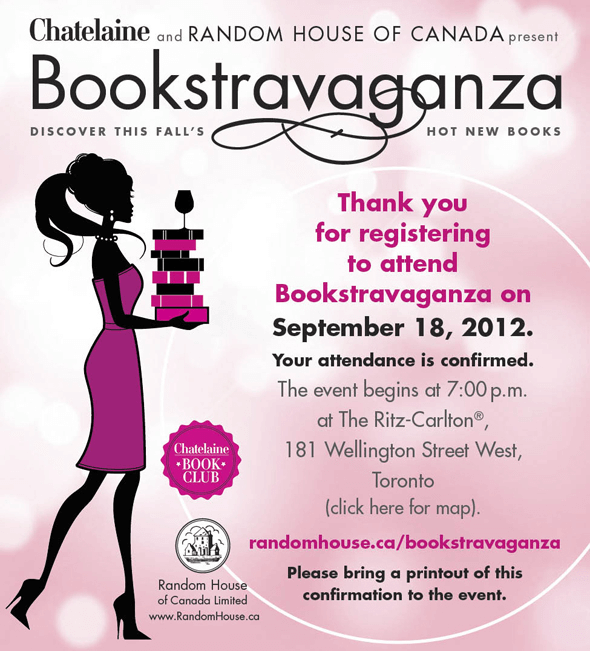Introduction
Part 1: The Pacific Journal of Adam Ewing (first half)
Part 2: Letters from Zedelghem (first half)
Part 3: Half-Lives: The First Luisa Rey Mystery (first half)
Part 4: The Ghastly Ordeal of Timothy Cavendish (first half)
Part 5: An Orison of Sonmi~451 (first half)
Part 6: Sloosha’s Crossin’ an’ Ev’rythin’ After (whole story)
Part 7: An Orison of Sonmi~451 (second half)
Part 8: The Ghastly Ordeal of Timothy Cavendish (second half)
Part 9: Half-Lives: The First Luisa Rey Mystery (second half)
Part 10: Letters from Zedelghem (second half)
Part 11: The Pacific Journal of Adam Ewing (second half)
Final Thoughts
What a difference twelve weeks of reading, thinking, and discussion can make. I thought I had a pretty good grasp of this book from the first time round. I remembered how much of the book was about the predatory nature of human beings, and that it was an exercise in writing in different genres with different voices. I knew that the stories were barely connected (or so I thought!) and that they were possibly about reincarnation, or at least about the overall human experience.
I wasn’t wrong, but my understanding was much shallower than I realized. I began to have an inkling about that when I read David Mitchell’s Ghostwritten a year later. With so many little connections fizzing throughout that book (including appearances by Timbo Cavendish and Luisa Rey from Cloud Atlas!), I wondered how much else was going on in Cloud Atlas than perhaps I’d first noticed in just a regular reading.
To start, this book is a whole lot more connected than I first thought. Sure, we have the two most obvious connections in the birthmark and the reading/viewing of each story by the main character of the next story. But so much more connects these different people, places, and times. Some are in details: Hawaii, for example, figures as a destination or home in almost every case (from Zachry’s people living on Hawaii to Adam Ewing being delivered to the nuns there in his time, from Sonmi’s fabricant sisters believing that Xultation is on Hawaii to Rufus Sixsmith’s niece working there). Adam’s ship Prophetess appears in Luisa’s story; Vyvyan Ayrs has a forward-flash dream about Sonmi’s world; the Prescients have visited the Swaneke tribe who might live on the Swaneke Island of Luisa’s story. Some are in role reversals: information is withheld from Sonmi in the same way that Meronym withholds information; Hae-Joo sees Sonmi the way Autua sees Adam. Some of them are linguistic, including the repetition of words like “cuckold,” “sloosh,” and “hydra,” or symbolic, such as the matryoshka doll.
Some of the connections are in the themes demonstrated at the individual, group, and societal levels. Ascent and descent, from the very physical climbing of clocktowers and mountains/falling from windows, to the more psychological ascent to the heights of genius and the descent into madness or suicide, and most assuredly the descent of whole nations into predatory patterns. Questions about the nature of time are posed and perhaps answered, though never for certain.
And certainty itself is called into question. Mitchell never makes it easy for us, our understanding of what this book “is.” Does Luisa Rey’s narrative really “happen,” or is she merely the fiction of Hilary V. Hush? And if she is fictional, does that make Adam and Robert fictional too? Does that guarantee that Timothy and Sonmi and Zachry are “real”? Does it matter? (Perhaps the aforementioned fact that both Luisa and Timbo appear as “real” characters in Ghostwritten can ease our fears that part of this fictional book is fictional within its own confines. If they both exist in that narrative, surely they must exist in this one?) And even if this is the case, we have reason to doubt the veracity, and even the meaning of “truth” itself, in each narrative. Each tale is being told after the fact by the narrator. Adam’s is in a journal that may have been edited by his son; Frobisher is writing letters and therefore presenting himself in the best possible light and in only the ways that he understands the world; Luisa’s story is a novel; Tim is writing his memoirs and is basing everything on his own questionable memory while aggrandizing the account of what’s happened to him; Sonmi is doing her best to tell the truth as she sees it while also making sure to leave a record that will influence the Archivist and future viewers into a specific course of action; Zachry is spinning yarns around the campfire meant to entertain and frighten his young listeners.
What is truth? What is time? Does the same soul appear in every story? Again, does it matter? Several specific quotes sum up what, to me, this book is doing. Human stories are told in a variety of guises here. With different genres and styles and characters, and in different media within the book, from journals and letters to books to movies to oral tradition, we see some of the same stories unfold. As history is forgotten, it repeats itself. The stories are cyclical, even beginning and ending and beginning again in the Pacific Islands, with groups of people who enslave other groups of people. People strive to overcome evil and predatory actions. Sometimes they succeed.
In terms of the nature of the story itself, Zachry tells us what’s going on:
I watched clouds awobbly from the floor o’ that kayak. Souls cross ages like clouds cross skies, an’ tho’ a cloud’s shape nor hue nor size don’t stay the same, it’s still a cloud an’ so is a soul. Who can say where the cloud’s blowed from or who the soul’ll be ‘morrow? Only Sonmi the east an’ the west an’ the compass an’ the atlas, yay, only the atlas o’ clouds. (p. 308)
Tim agrees: ” we cross, crisscross, and recross our old tracks like figure skaters” (p. 163) and “What wouldn’t I give now for a never-changing map of the ever-constant ineffable? To possess, as it were, an atlas of clouds” (p. 373).
Frobisher echoes the sentiment:
“Strip back the beliefs pasted on by governesses, schools, and states, you find indelible truths at one’s core. Rome’ll decline and fall again, Cortés’ll lay Tenochtitlán to waste again, and later, Ewing will sail again. Adrian’ll be blown to pieces again, you and I’ll sleep under Corsican stars again…Nietzsche’s gramophone record. When it ends, the Old One plays it again…Time cannot permeate this sabbatical. We do not stay dead long.”(p. 471)
“One fine day, a purely predatory world shall consume itself,” Adam agrees (p. 509): “Torturous advances won over generations can be lost by a single stroke of myopic president’s pen or a vainglorious general’s sword.” But it is worth fighting for a better world, a peaceful world. It is worth fighting for kindnesses. And when we forget this lesson, we repeat it all over again.
Thanks so much for joining me in this readalong, for being several of many drops in the ocean with me. I so appreciate all the insights you’ve shared! Please let me know in the comments what else is on your mind as we finish up our reading.
You might also like:





Thank you for your most insightful review!
I’d venture to propose that another possible theme in the novel would be that of the pursuit of what is right, in spite of the overwhelming odds, or the presence of a “path of least resistance”? This may be seen through Ewing’s ultimate support of abolitionism, Frobisher’s refusal to allow the plagiarism of his work, Luisa’s pursuit to publish the truth behind the Swanneke nuclear plant, Cavendish’s exercise of his right to freedom, Sonmi’s revelation of the truth behind Unanimity and Zachry’s self preservationism (a little edgy on this last one). The notion of reincarnated souls (in independent narratives) existing in different physical bodies serves as a leitmotif to reinforce the idea that what is “right” or morally correct (a little dubious here given that that is completely subjective to what the individual feels is “right”) must be upheld regardless of time and space and place and existence.
What do you think?
As others have said, thank you for this read-along. I discovered it when looking for something in the second half of the Luisa Rey story, and wish I’d found it sooner. I would have been armed with insights as I went, instead of looking back and trying to remember. My own review of the novel will owe a great deal to your insights and those of my fellow commenters. Thanks to all.
Thanks so much again again Dee! Your thoughts were truly eye (and mind) opening. I am in Alexandre’s shoes with being a non native English speaker and your attention for the little links and details made the read even more enjoyable. Rarely it happens that a book, song, movie or game sticks with you for a while, haunts you in your dreams and demands further time for processing. Cloud atlas is definitely one of them. The last “grower” I was exposed to was a little computer game named “Braid” which also works on many different levels.
Great work on the read-along! Thoroughly interesting and thought provoking every week. Ok, now what’s the next one?!
Great readalong. It help me put a lot of the pieces together. I’m just a little confused! Who was supposed to be the reincarnated character in both Adam and Tim’s story? I realize reincarnation isn’t the main theme of the story so it shouldn’t matter, but It just feels a bit incomplete not knowing.
Thank you very much for the readalong! I would like to indirectly also to thank Mitchell for the great book, since I can’t reach him personally… I enjoyed your blog it very much! Shed a light on many passages I either found difficult to interpreter or the language barrier was imposed (english is not my first language). I also think this is my new favorite novel, and now that I finished reading it, all I have left is that void that come when you finish great novels. The book made me cry and laugh many times. Unfortunately the movie will be around here only by mid-to-end december, so i’ll have to wait a bit. Thank you very much for your time to write this readalong, your excellent insights and your literary “smarts” that made the reading so much more enjoyable! Cant wait for your next readalong witch will definitely be my next book! Alexandre
Thanks for the readalong. I loved the book when I read it for the first time, but having read it again as part of the readalong, I enjoy it even more. Honestly, this may be my new favorite novel. It’s been years since I’ve enjoyed a novel as much as I did Cloud Atlas, or since a novel made me pore over it piece by piece for new stuff on re-reads.
I keep meaning to see the movie, but things keep coming up to block it. I’m hoping I can at least put in a response here soon as to what I thought about it.
I like how Mitchell leaves that open, and I usually love closure in stories. We ultimately don’t know what will happen to humanity at the end of “Sloosha’s Crossing”. The last remnants – even the last people – of the Old World are gone, and humanity’s situation is so tenuous, the price that they paid for failure being incredibly steep.
I finally saw the movie. My thoughts are over in the comments of the review you did of it.